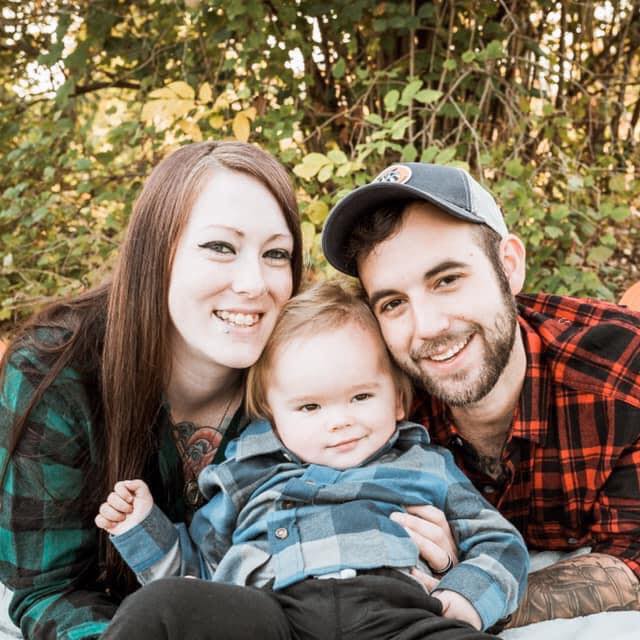
Atticus Gamble
Living with Infantile Tay-Sachs Disease: Dance Parties and Finding a Community Who Understands
Atticus Avery Gamble was born on May 19, 2019, to first-time parents Samantha (Sam) and Roman. A happy baby, Atticus loved music and lights, and cracked up laughing every time Atlas the German Shepherd barked. He often had the “sleepy sillies,” where he’d wake in the middle of the night and giggle to himself in his crib.
When he was about two months old, Sam noticed that Atticus had poor control of his head. She mentioned her concerns to the nurse practitioner who told her not to worry. But Sam’s intuition told her something was wrong, and she spent hours online researching early developmental milestones.
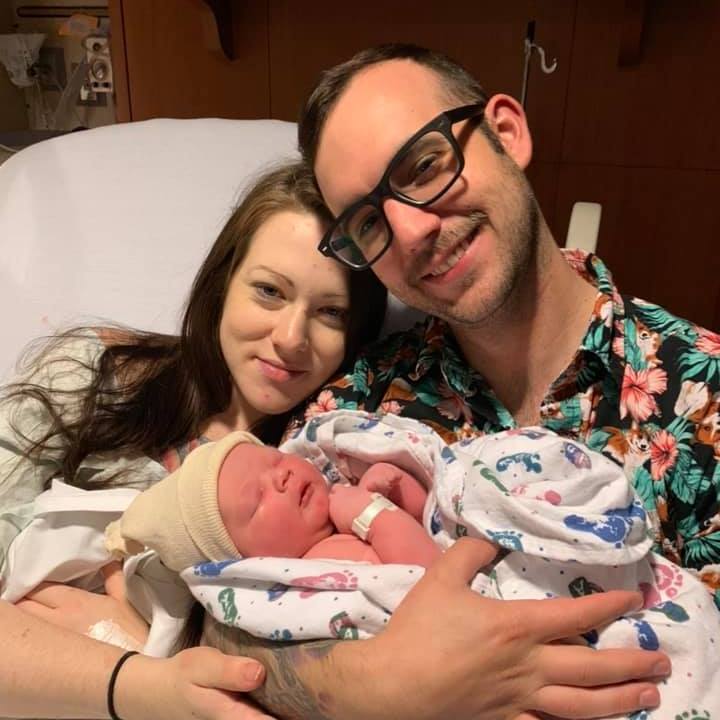
Sam remembers other new parents suggested she work with Atticus to build up his muscle tone. To engage in more tummy time or baby development exercises that might strengthen his neck muscles.
“Everyone was telling me he’s fine, or he’s just being lazy,” Sam said. “But deep down, something felt seriously wrong.”
So Sam kept searching for answers.
Two months later, Sam took Atticus to see the pediatrician, and Atticus was diagnosed with hypotonia, or poor muscle tone. Hypotonia can be a condition on its own, or a symptom of a variety of underlying conditions.
Atticus went through six months of testing to find out what could be causing the hypotonia, with no definitive answer. The couple thought they ruled out everything and were starting to feel optimistic, like maybe Atticus was just developing a bit slower than other kids his age.
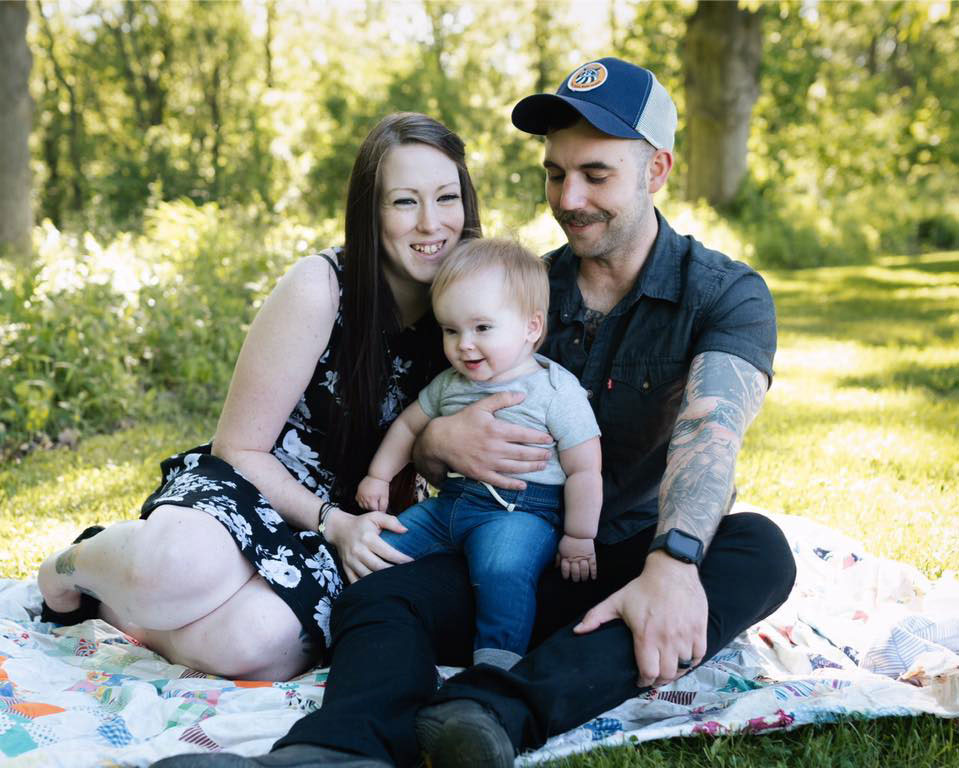
Finding the Cherry-Red Spot
The Gambles had an eye appointment scheduled for Atticus because he was having vision problems. They didn’t imagine the appointment would shed any light on Atticus’ condition. But during the appointment, the eye doctor noticed a cherry-red spot in the macula, the round area at the center of the retina at the back of the eyeball. A cherry-red spot can indicate a variety of conditions, including lysosomal storage disorders, and Atticus’s neurologist ordered a blood test for more information.
The blood test confirmed a diagnosis—infantile Tay-Sachs disease.
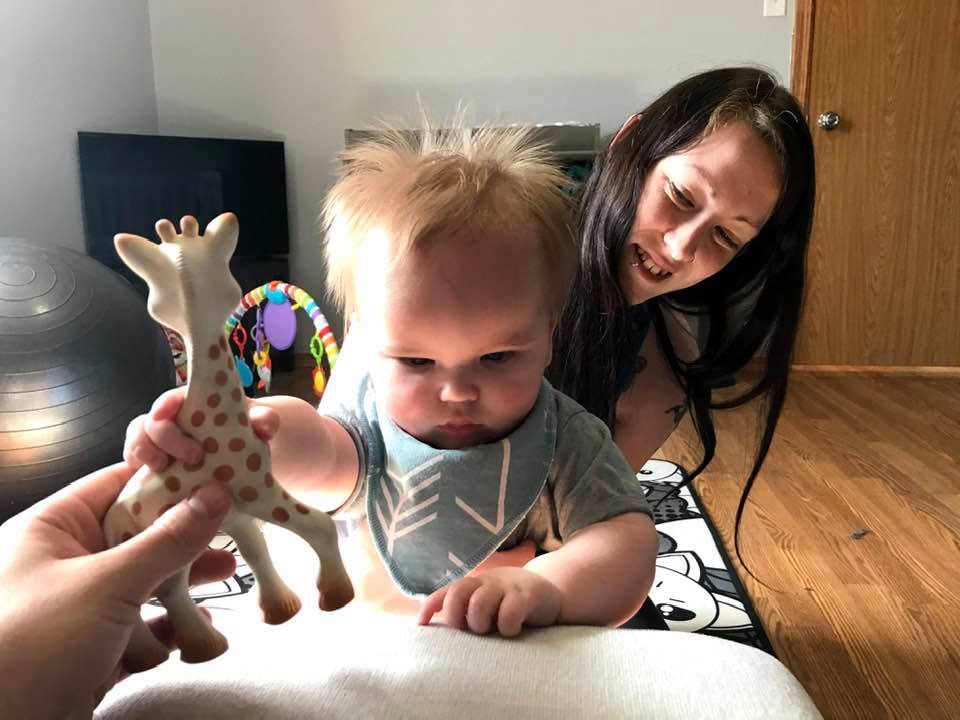
Tay-Sachs disease is a recessive genetic, neurodegenerative disorder where the absence of a key enzyme causes fatty substances to build up, which damages the brain and spinal cord. Symptoms of infantile Tay-Sachs typically appear between the ages of 3-6 months of age. There is no cure for the disease, and infantile Tay-Sachs disease is fatal in children.
“My heart just shattered in that moment,” says Sam.
The World Comes Crashing In
Atticus was diagnosed with Tay-Sachs disease on March 14, 2020, the same week the world ground to a halt due to the emerging COVID-19 pandemic.
“It felt like our world was crashing in,” says Roman. “Right away, I started researching if there was anything we could do, and I found some clinical trials on Tay-Sachs.”
Roman contacted the researchers who he says were always really nice, but they couldn’t help. Their clinical trials had been put on hold as healthcare organizations focused all of their attention on the pandemic.
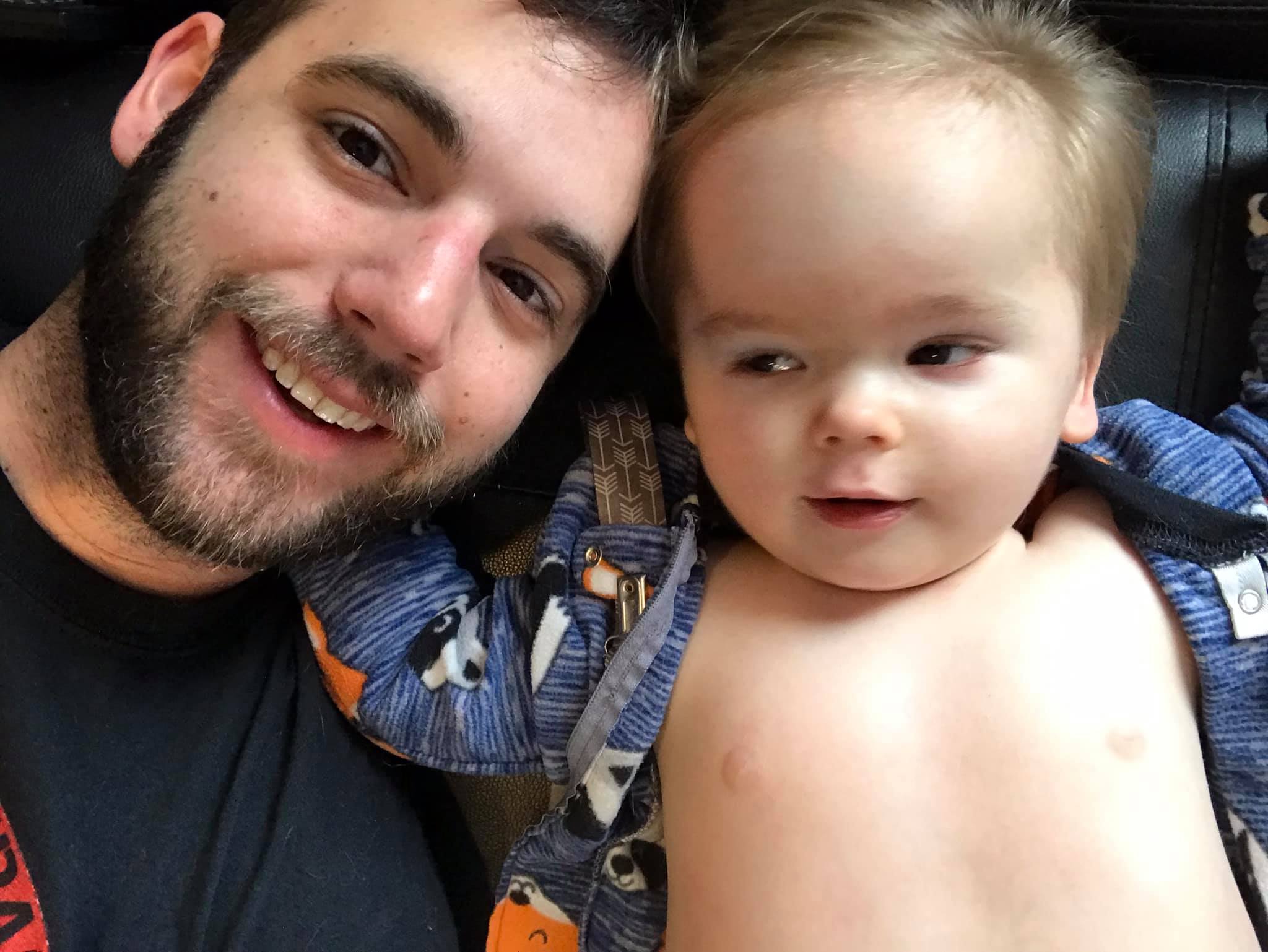
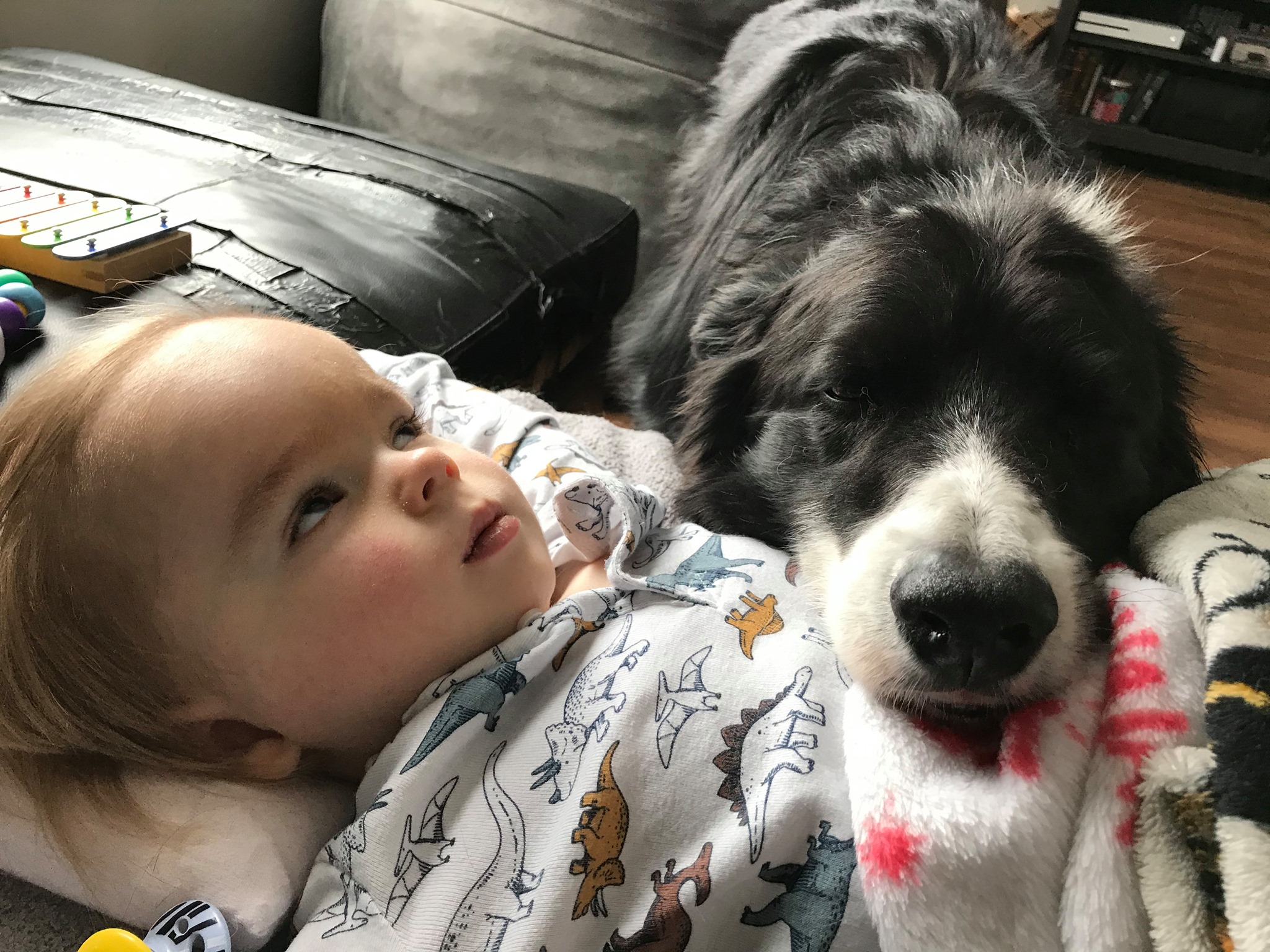
Eventually the initial shock of diagnosis wore off. Sam and Roman focused on being present and in the moment with Atticus and showing him how much they loved him.
“It’s hard not to grieve, but you’ll have the rest of your life for that,” Sam says. “You’ve got to enjoy the time you have.”
Sam and Roman had to get creative. They couldn’t have friends and family over for visits because of social distancing precautions. So they would cuddle with Atticus on a beanbag chair and look up at the colorful lights that Roman strung up throughout the house. They sometimes went for walks downtown to enjoy some fresh air.
“We started having dance parties with Atticus every night,” says Roman. “We’d listen to music and bounce him. He loved Russian pop music the best.”
Connecting with the NTSAD Community
As the Gamble family adjusted to their new circumstances, Sam started a Facebook page to share Atticus’ diagnosis and their experience with family and friends across the country. She posted regular updates and shared news following medical appointments. Support flooded in, with friends launching a GoFundMe campaign to help with medical fees and neighbors starting meal trains for the family.
It was through Facebook that Sam discovered the National Tay-Sachs and Allied Diseases Association (NTSAD). As she scrolled through post after post about medications, symptoms, questions, and research, Sam realized she’d found a supportive and welcoming community.
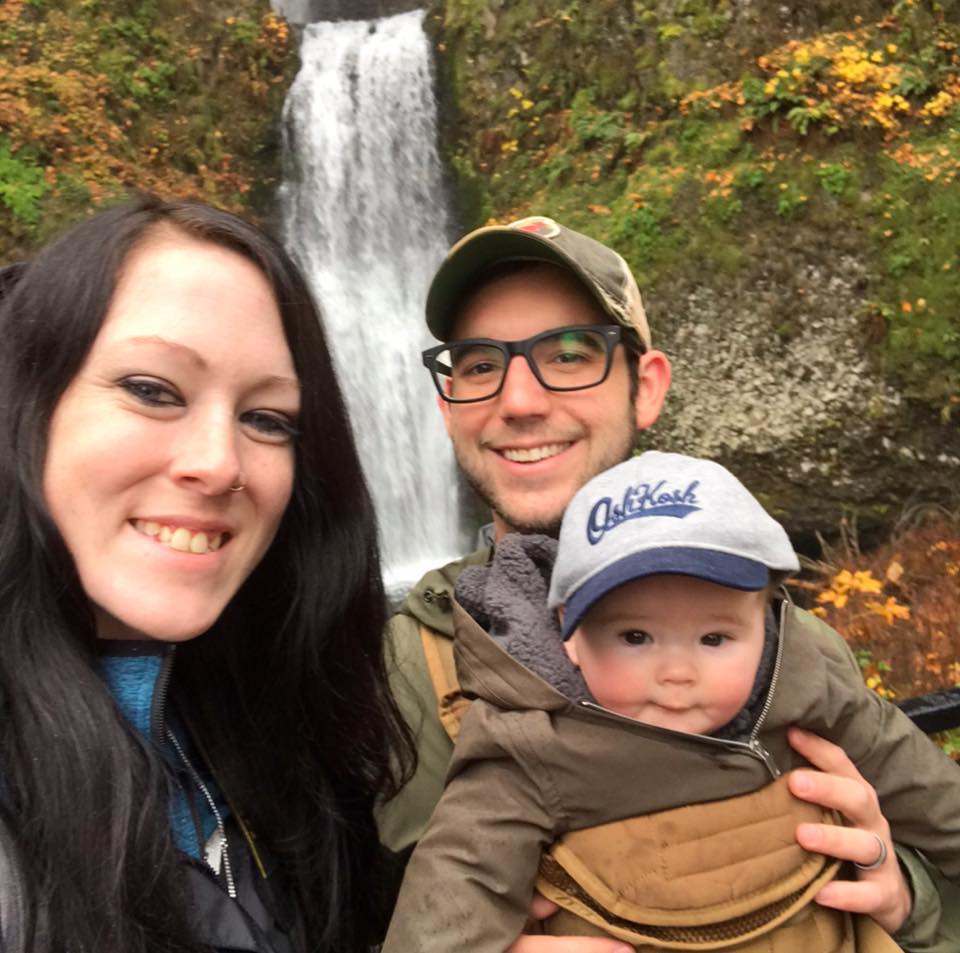
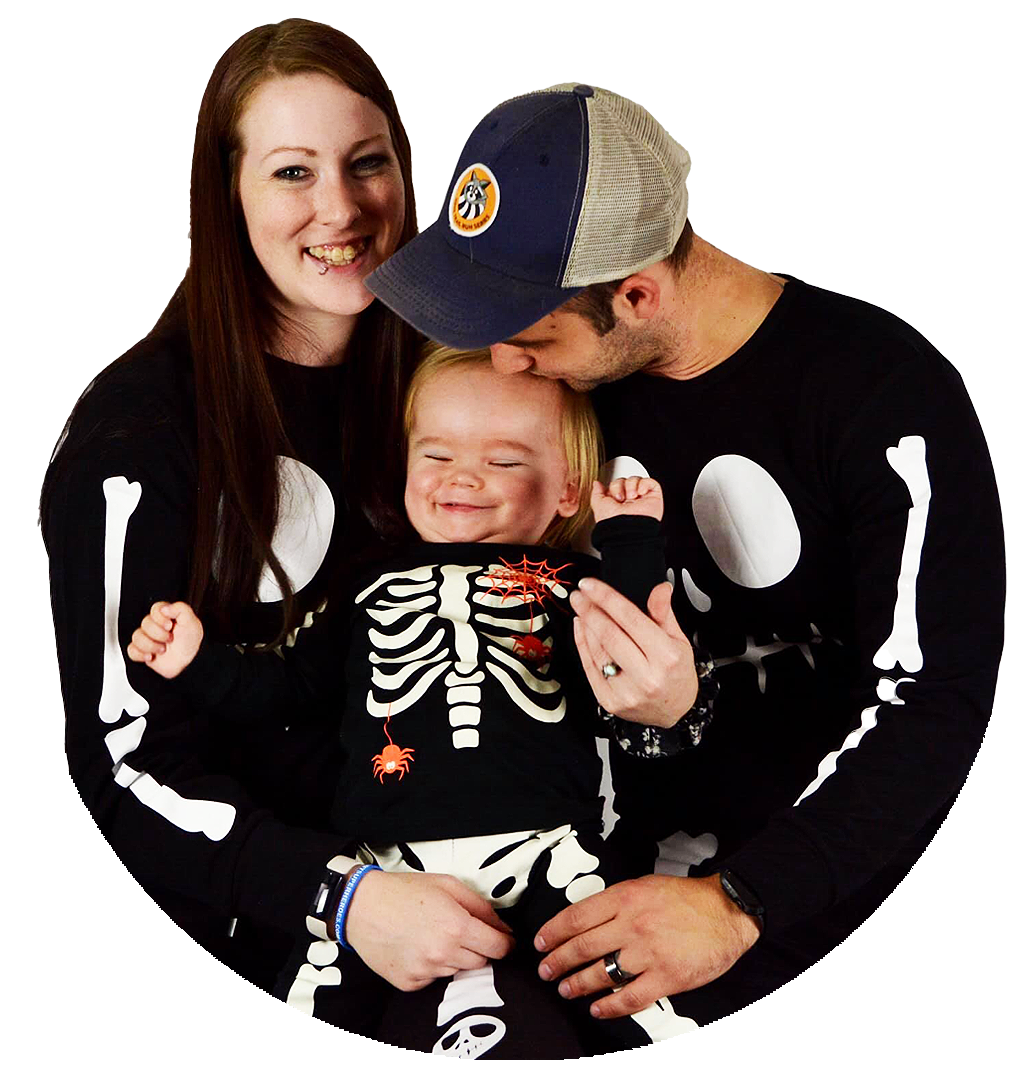
“I was like, wow, I can actually relate to these people,” Sam says. “It made a huge difference because no one really knew what we were going through.”
Through the NTSAD website, Sam and Roman found reliable and accurate information that they couldn’t find anywhere else. They connected with the Family Services team who were quick to respond to questions and help them find resources, like medical equipment.
“Before we found NTSAD, it was very lonely,” says Sam. “It was a relief to finally have people to talk to.”
Finding Support through the Worst of Times
As the illness progressed, Sam and Roman spent more and more of their time caring for Atticus. Their kitchen counter was dotted with cups holding syringes, medication charts were tacked on the fridge, and the sound of alarm reminders regularly filled the room.
Thanks to her experience working as a veterinary technician, Sam quickly learned how to operate the medical equipment the family used to help care for Atticus. It was more of a learning curve for Roman.
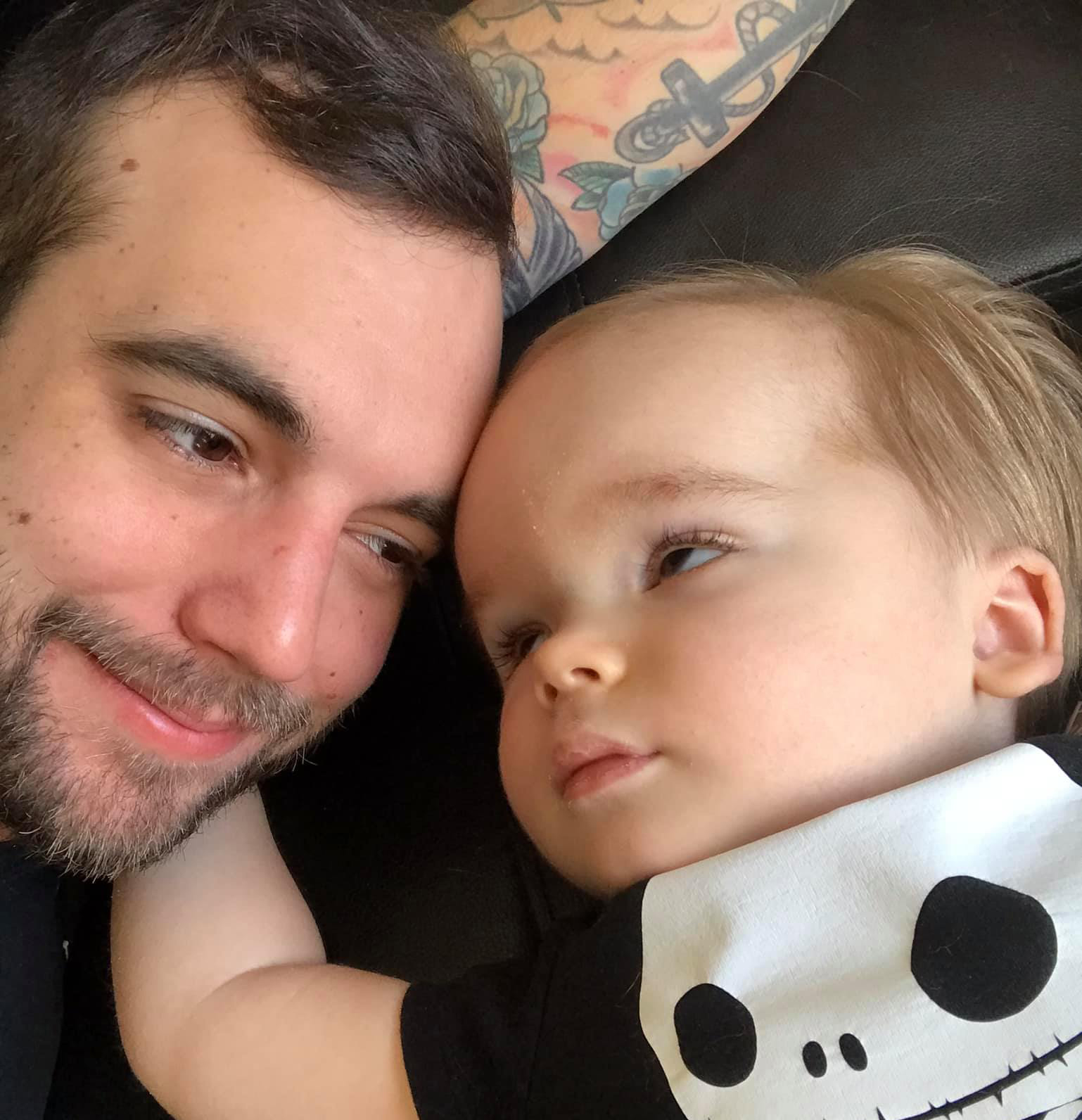
“I was just so afraid that I was going to hurt him and make it worse,” says Roman. “The first day after his G-tube surgery, I was terrified to hold him.”
One of the hardest parts for Roman and Sam was watching Atticus regress. He loved grabbing his toes—Roman remembers that every single pair of socks Atticus wore were quickly shredded. When he lost the ability to touch his toes, Roman could see the frustration in Atticus’ eyes.
But Roman realized he needed to meet Atticus where he was and tried not to get discouraged when Atticus regressed. “We needed to find a new normal and make the best of it,” says Roman. “Figure out a way to adapt so Atticus could still enjoy things.”
During this time, Roman and Sam leaned on the NTSAD Community for support. They knew they could ask about things like seizures and medications, even what to expect during end-of-life. In turn, they shared their experiences and helped other members of the Community.
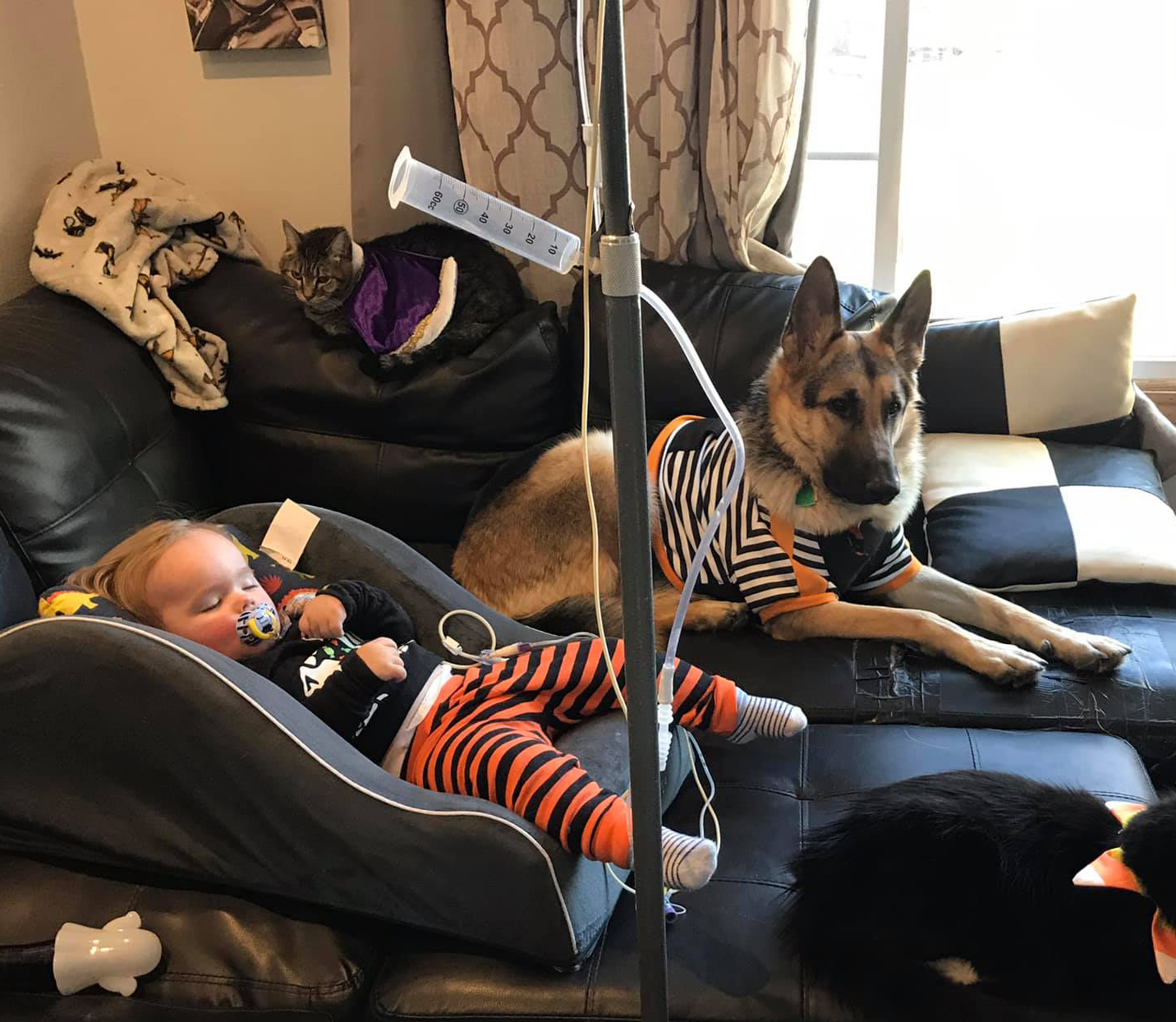
“There was a comfort in knowing I was taking care of him,” says Sam.
Atticus died on February 14, 2021.
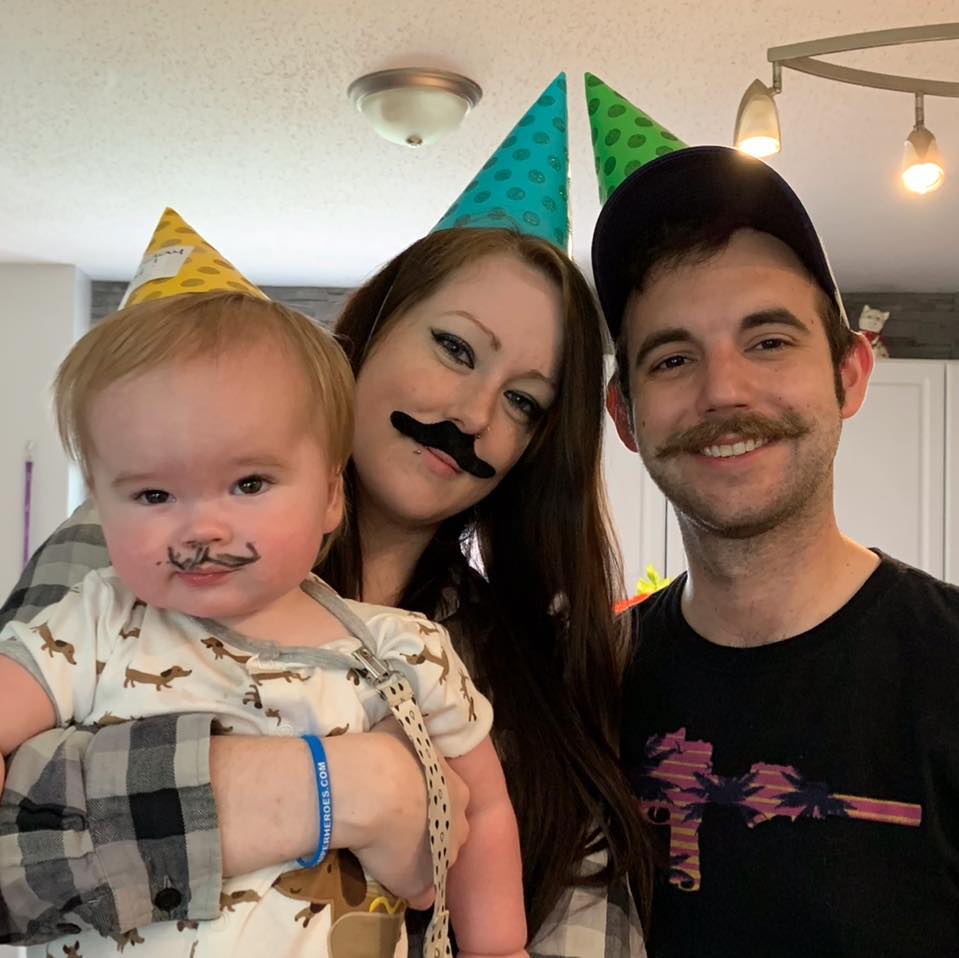
Your Big Brother Loves You Very Much
Every year on his birthday, Sam and Roman play Atticus’ favorite playlist. For Christmas, family and friends send notes and memories to fill his stocking. And Sam and Roman share Atticus’ favorite traditions and routines with his little brother, August, who was born in July 2022.
“We want to make sure August knows he has a big brother, even though he’s not with us anymore,” Sam says. “And we tell him that Atticus loves him very much.”
The Gamble family honors Atticus’ legacy every day. They’ve donated medical equipment to other families in the NTSAD Community. Roman volunteers his time and skills as a photographer at the local hospice in Des Moines. And Sam stays in touch with the friends she’s made in the NTSAD Community.
“People remember how happy Atticus was, always full of smiles and giggles, even at the worst of times,” says Roman. “I think that is his biggest legacy.”
If you’re struggling to find answers about your child, you are not alone. Trust your instinct, keep pushing for answers, and contact NTSAD’s Family Services team. We’ll provide accurate information on symptoms and diagnostic tools, as well as personal support you can rely on.
If you’re a healthcare provider, please do not dismiss the concerns of parents. Contact NTSAD’s Family Services team for more information on symptoms and diagnostic tools for Tay-Sachs and similar diseases.
If you would like to help support Rare families like the Gambles, please consider making a gift to NTSAD’s annual fund, which provides programs, services, and support to families at no charge.

